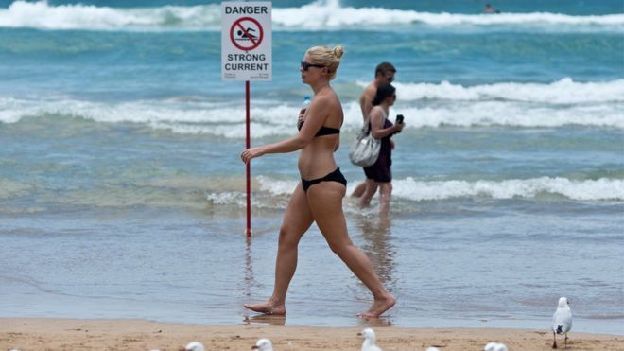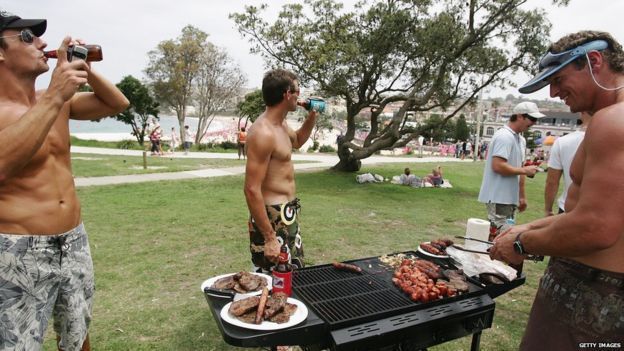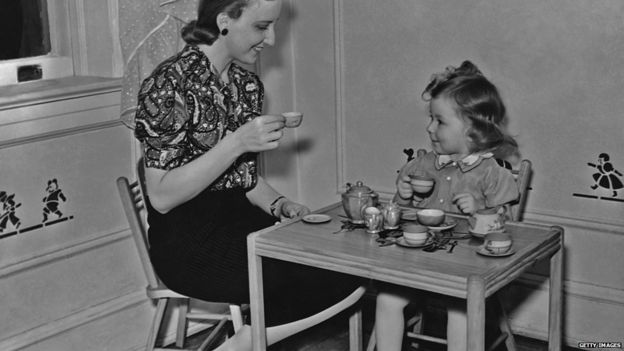当前位置: Language Tips> 双语新闻
Everything the new arrival needs to know about Australia
Syria is a long way from Australia and the 12,000 refugees who will make their way south over the next 12 months will be likely to measure the distance in more than kilometres.
叙利亚距离澳大利亚很远,1.2万难民将在未来一年南下,这段路程可不止数公里。
In a surprising policy change, the Australian government recently said it would accept 12,000 Syrian refugees from camps in Jordan, Lebanon and Turkey.
澳大利亚政策出现意外转变,澳政府近期宣布,澳大利亚将从约旦、黎巴嫩和土耳其的难民营接收1.2万名叙利亚难民。
In what will be Australia's biggest refugee intake in decades, the government is rushing to find accommodation and extra services to help resettle people fleeing trauma and persecution in their home country.
这将是十年来澳大利亚接收难民最多的一年,政府正紧锣密鼓地为难民安排住宿,提供额外服务,帮助安置这些逃离在家乡遭受的痛苦和迫害的难民。
It won't be easy moving to a strange, new country but the government has a helpful explainer for new arrivals.
到一个陌生的国度定居并不是件容易的事,不过,澳大利亚政府已经为这些新来的难民准备了有用的生活指南。
The "Life in Australia" booklet, published by the Department of Immigration and Citizenship, offers handy tips and explanations about the ways down under.
澳洲移民与公民事务局出版了这本名为《澳大利亚生活》(Life in Australia)的小册子,为在澳生活的难民提供有用的提示和说明。
There are facts and figures about the country, an explanation of national symbols and a potted history of this "wide, brown land".
小册子介绍了澳大利亚的相关信息和数据,阐释了这片“广袤棕土地”的民族象征和国家简史。
More intriguingly, the faceless bureaucrats have offered a cultural snapshot that may bemuse rather than reassure new arrivals, complete with definitions for time-honoured phrases such as "drop by this arvo for a cuppa" (please visit this afternoon for a cup of tea or coffee) and "no worries", which of course means "the task or request will be carried out without fuss or bother".
更有趣的是,千人一面的政府官员却提供了不少文化背景介绍。但对这些初来乍到的难民而言,有些内容不仅不能让他们消除疑虑,反而更加困惑。小册子中阐释了一些历史悠久的澳式短语的定义,如"drop by this arvo for a cuppa"(意为“今天下午请过来喝杯茶或咖啡”)和“no worries”(意为“这项工作或请求可以不受干扰或影响地开展”)等。

The booklet also points out that although locals may often strip off on hot days at the beach, that does not mean wearing little clothing translates to having "low moral standards".
小册子还指出,尽管当地人天热的时候在海滩会脱光衣服,但这并不意味着穿很少的衣服就是“道德败坏”。

It describes the concepts of "mateship" (a friend but also a total stranger), a "fair go", and the much-loved ritual of having a "barbie".
小册子还描述了“同伴关系”(是朋友,同时也是完全的陌生人)、“公平对待”的概念和澳大利亚人喜欢“烧烤”的传统。
It claims another defining feature of Australian society is its egalitarian nature and Australians' informal relationship with work colleagues.
小册子还点出了澳大利亚社会另一个典型特征——本质上的平等主义,同事间的关系比较随便,不那么正式。
"However, this informality does not extend to physical contact. When meeting someone for the first time, it is usual to shake the person's right hand with your right hand. People who do not know each other generally do not kiss or hug when meeting."
“但是,这种不正式并不适用于肢体接触。初次见面时,通常是用右手去握对方的右手。不熟悉的人见面通常不会亲吻或拥抱。”
The importance of good manners and good hygiene are also explained. Not blowing your nose on the street gets a mention, as does washing your hands before eating and after going to the toilet, and saying "thank you" or "please" when dealing with others.
小册子也阐明了举止得体和
良好卫生习惯的重要性。比如,不要在街上擤鼻涕,饭前便后要洗手,跟人打交道时要说“谢谢”和“请”。
"Australians also queue or line up when waiting to be served in a shop, a bank, a government department, a cinema or anywhere a number of people are all seeking a service at the same time."
“澳大利亚人去商店、银行、政府部门、电影院或任何同时有多人寻求服务的场所时,都会排队等候。”

The peak eating times of the day are spelt out:
进餐时间也有详细解释:
"The midday meal is called 'lunch', and the evening meal is usually called 'dinner'. Some Australians also refer to the evening meal as 'tea' and can use the term to mean either dinner or, literally, a cup of tea or 'cuppa'. If invited for tea, the time of the event is a good sign of whether your host means dinner or just a cup of tea. An invitation to tea, any time after 6 pm (1800 hours) usually means dinner."
“中午那顿饭叫‘午餐’,晚上那顿饭通常叫‘晚餐’。有些澳大利亚人也把晚餐叫做‘茶’,这个词可以指晚餐,也可以指字面意义上的茶。如果被人邀请喝茶,可以通过时间来确定主人是请吃晚饭还是只请喝茶。一般来说,邀请在下午6点之后喝茶,意味着是请吃晚饭。”
Is there a typical Australian, asks the booklet?
小册子中提出一个问题:有没有典型的澳大利亚人呢?
Well, what with the ocker, the digger and his mate, it can all be a bit confusing.
嗯,粗鲁的澳大利亚人、澳大利亚士兵和他的同伴,这些都让人有点困惑。
Just remember:
只要记住:
"Australians are egalitarian, irreverent people with a deep suspicion of authority - yet they are mostly law-abiding and conformist."
“澳大利亚人信奉平等、不畏权贵,对当局深怀疑虑,但他们大都遵纪守法,尊奉习俗。”
Oh, and we all love the bush but most of us live in cities on the coast.
哦,我们都热爱丛林,但大部分人都住在沿海的城市里。
Bonza!
太棒了!
Vocabulary
faceless:没有个性的
bemuse:使困惑
egalitarian:平等主义的
spell out:清楚地解释,详细说明
ocker:粗鲁的澳大利亚人
irreverent:不尊敬的 [表赞许]
conformist:因循守旧的
英文来源:BBC
译者:Sapphire909
审校&编辑:马文英
上一篇 : 科学家12年不洗澡靠喷雾清洁
下一篇 : 英国人被机场没收的奇葩物品
电话:8610-84883645
传真:8610-84883500
Email: languagetips@chinadaily.com.cn